
alternative raw materials and shorten your search for
suppliers to 2 minutes.
 How megatrends are changing the food industry
How megatrends are changing the food industry
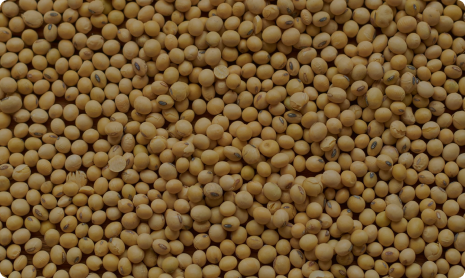 Soybeans as superfood
Soybeans as superfood
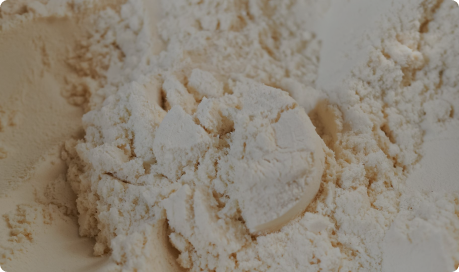 Alternative proteins on LEROMA
Alternative proteins on LEROMA
 From beans to burgers
From beans to burgers
 Your search engine for alternative protein sources
Your search engine for alternative protein sources
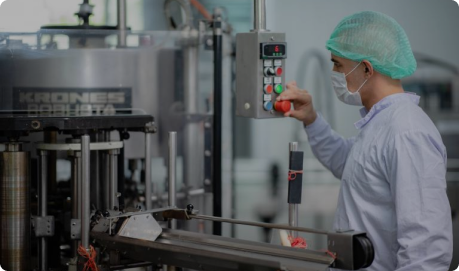 The food of the future
The food of the future
Megatrends have a major impact on industries, companies and markets.
Environmental awareness and sustainability are increasingly driving consumers' purchasing decisions. Tomorrow's economy must focus on
sustainability, post-growth and the common good.
Significantly less land area is required for production of protein meat substitutes compared to conventional animal agriculture. There is also the elimination of the need for feeding and animal husbandry. A major
advantage of the alternative products is the reduced water and energy requirements as well as the lower methane emissions.
Megatrends have a major impact on industries, companies and markets. Environmental awareness and sustainability are increasingly driving consumers' purchasing decisions. Tomorrow's economy must focus on sustainability, post-growth and the common good.
Significantly less land area is required for production of protein meat substitutes compared to conventional animal agriculture. There is also the elimination of the need for feeding and animal husbandry. A major advantage of the alternative products is the reduced water and energy requirements as well as the lower methane emissions.
The health trend links food with values and one's own lifestyle. This results in vegetarianism and veganism gaining more and more importance. According to the motto "health is food", plant-based alternatives and superfoods in particular are considered not only good for health, but also for the environment and the entire planet.
These developments can already be observed today. Meat substitutes are now an integral part of every supermarket. The market trend predicts that by 2030 the use of alternative ingredients in food production will increase by 30%.

The
health trend links food with values and one's own lifestyle. This results in vegetarianism and veganism gaining more and more importance. According to the motto
"health is food", plant-based alternatives and superfoods in particular are considered not only good for health, but also for the environment and the entire planet.
These developments can already be observed today. Meat substitutes are now an integral part of every supermarket. The market trend predicts that by 2030 the
use of alternative ingredients in food production will increase by 30%.
Forecast for the global retail market of plant-based products (in billion USD)
Insert your text here
Insert your text here
.png)
Insert your text here
Source: Bloomberg Intelligence, OECD FAO Agricultural Outlook 2021-2030, GFI 2020 State of the Industry Report
For years, the sales of many companies focused on plant proteins have been increasing. Due to the
increasing demand of consumers, the interest of food producers and their suppliers is also growing.
Germany has the
highest percentage (10%) of consumers who eat
vegetarian or vegan in Europe. The plant-based meat sector is expected to continue to grow in the future. Already 41% of Germans would be likely to buy plant-based meat on a regular basis.
With a sales growth rate of 623%, plant-based fish also has enormous potential.
Animal protein is known to have higher nutritional quality and better technological functionality than vegetable protein. In particular, when it comes to gelling, emulsifying and foaming. However, it is possible to modify the properties of all proteins through processing to maximize their functions. Food technologists have a responsibility to develop ever more innovative solutions for plant proteins.
The main differences between animal and plant proteins can be divided into three criteria:
Animal protein is known to have
higher nutritional quality and
better technological functionality than vegetable protein. In particular, when it comes to gelling, emulsifying and foaming. However, it is possible to
modify the properties of all proteins through processing to maximize their functions. Food technologists have a responsibility to develop ever more innovative solutions for plant proteins.
The
main differences between animal and plant proteins can be divided into three criteria:
.png)
Among the most popular plant sources of protein are grains, legumes, seeds and nuts. Soybeans are the most promising. Legumes contain 35-40% of protein and have all 9 essential amino acids. As a result, they have the greatest potential to replace meat and dairy protein. Finally, soy is the only plant-based complete protein source. Its other advantage is digestibility. Proteins and amino acids from soy can be digested and absorbed very well by humans and animals. If the beans are processed into soy protein isolate, the protein content increases to 90% or more. Its functional properties such as water and fat binding, emulsification, foaming and gelling also contribute to its use in a wide variety of foods.
If the beans are processed into soy protein isolate, the protein content increases to 90% or more. Its functional properties such as water and fat binding, emulsification, foaming and gelling also contribute to its use in a wide variety of foods.
If the beans are processed into soy protein isolate, the protein content increases to 90% or more. Its functional properties such as water and fat binding, emulsification, foaming and gelling also contribute to its use in a wide variety of foods.
Insert your text here
Insert your text here
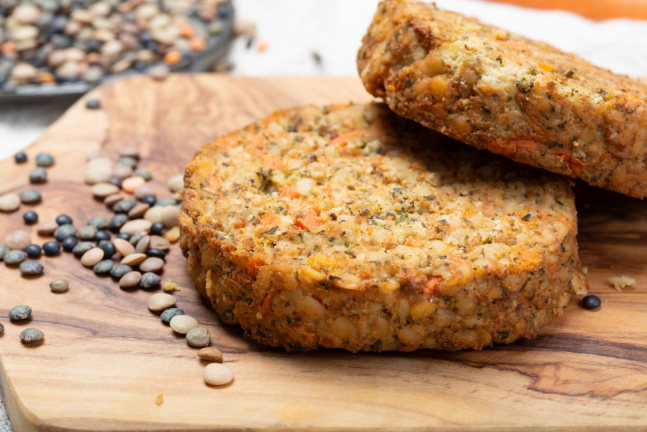
Insert your text here
Plant-based and alternative protein sources are no longer niche products. From sustainability-oriented startups to established companies in the meat industry, the food industry is increasingly turning to vegetarian and vegan products.
New technologies are being developed to produce alternatives that are
more sustainable than fish and meat. As a result, there is already a wide variety of substitute products on the market.
Vegan protein sources made from foods that are naturally high in protein are popular. These include
legumes such as soybeans or lentils and certain vegetables. These raw materials can be consumed as unprocessed foods or further processed.
One method of further processing is fermentation to produce tempeh from soybeans. In our
magazine, you can learn more about the technology behind this. However, other meat substitutes such as
vegetarian sausages can also be made from soybeans. Besides tempeh, tofu and seitan, however, there are many other meat alternatives. For example, burger patties can be made from peas, beans, lentils and lupins to ensure a natural treat.
Alternative does not necessarily mean plant-based. Protein from
insects or eggs also offer some advantages and are also suitable as a more sustainable option.
Animal protein is known to have higher nutritional quality and better technological functionality than vegetable protein. In particular, when it comes to gelling, emulsifying and foaming. However, it is possible to modify the properties of all proteins through processing to maximize their functions. Food technologists have a responsibility to develop ever more innovative solutions for plant proteins.
The main differences between animal and plant proteins can be divided into three criteria:
Search for food raw materials on our B2B platform to get in touch with the right suppliers. Categories and
product-specific technical criteria serve as filters to help you find the raw material you are really looking for.
You did not find the right raw material? Send us your
inquiry at no cost via phone at +49 211 639 577 60 or e-mail at
anfrage@leroma.de. We will find suitable manufacturers, suppliers, wholesalers or importers in our large trading network.
.png)
In addition to regularly available raw materials, you will also find alternative proteins listed as surpluses at LEROMA. This allows
favorable occasional purchases of high quality protein sources. The Surplus Exchange, our B2B marketplace for residual stocks, is suitable for sourcing raw materials and semi-finished products. As the offers are
available immediately and in various quantities, they are ideal for product development and testing market trends.
In case of raw material shortages or supply bottlenecks of your manufacturer, you can find new suppliers or make one-time purchases at LEROMA. Benefit from flexible processing and time savings, as the products are already produced and waiting for you in a warehouse. At the same time, you contribute to a circular economy, as you save raw materials from disposal.
Insert your text here
Insert your text here

Insert your text here
Proteins act as important building blocks for each of our cells, participate in the metabolic process and are components of enzymes. The human body depends on proteins because they are involved in muscle and bone formation as well as transporting vital substances.
In addition to the increasing demand for alternative products due to
changing values in society, the
growing world population also plays a role. Increased demand for food cannot be met by conventional protein sources such as bread or dairy products. The nutrition sector needs to turn to alternatives such as plant-based proteins to create the basis for a healthy and sustainable diet for all people.
Whether research projects, startups or organizations - many are adapting to the sustainable and future-oriented demands of consumers. Research into the mode of action, use and implementation of alternative ingredients is also increasingly developing. The
growth potential of alternative proteins gives hope for a more sustainable future.
Use our platform and become part of the protein revolution!
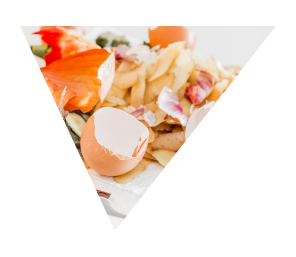
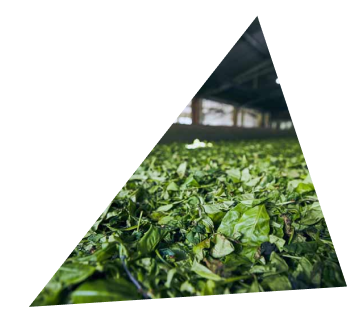
between the needs of human nutrition
and the impact on the environment.
